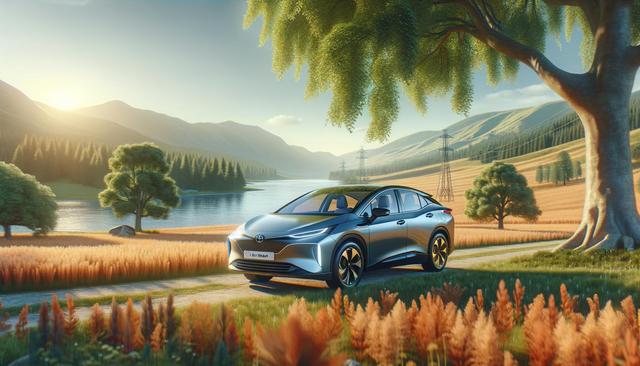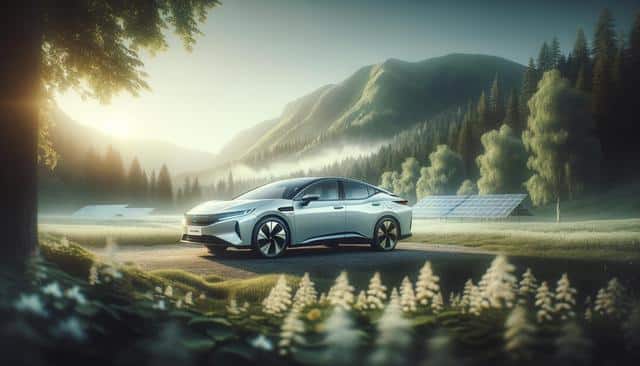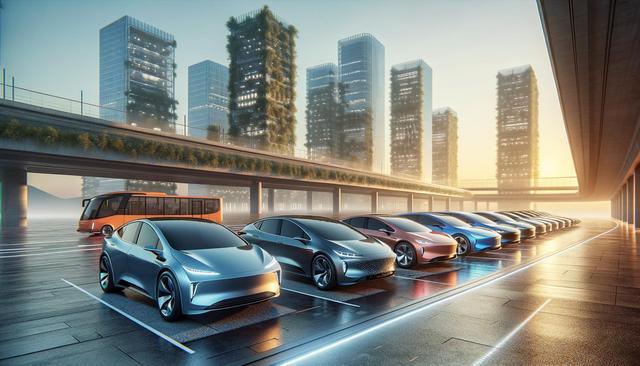What Is a Hybrid Car?
A hybrid car is a vehicle that combines a traditional internal combustion engine with an electric motor and battery pack. This dual power system allows hybrid cars to alternate between gasoline and electric power or use both simultaneously. The idea behind hybrid technology is to optimize fuel efficiency and reduce emissions by leveraging the strengths of both energy sources. Unlike fully electric vehicles, hybrids do not rely solely on electric power, making them a practical solution for those not ready to transition completely away from fossil fuels. Hybrid systems are designed to capture energy during braking (regenerative braking) and use it to recharge the battery, thus improving overall energy efficiency. For more information on hybrid technologies and savings opportunities, you can visit https://go.jexli.com/postback?clickId={click_id}&payout={epayout}&p2={campaign}.
The Benefits of Owning a Hybrid
One of the main reasons consumers are turning to hybrid cars is the range of benefits they offer. These benefits cater to both the environment and the driver’s wallet. Here are some key advantages:
- Improved fuel economy, especially in city driving conditions
- Lower emissions compared to conventional gasoline vehicles
- Reduced dependency on fossil fuels
- Potential tax incentives and rebates in some regions
- Quiet engine performance due to electric motor assistance
Hybrid owners often notice significant savings at the pump, as the electric motor can handle short-distance and low-speed driving. In traffic-heavy environments, where stop-and-go movement is common, hybrids perform especially well by minimizing fuel use. Learn more about how hybrid ownership can benefit you at https://go.jexli.com/postback?clickId={click_id}&payout={epayout}&p2={campaign}.
Types of Hybrid Vehicles
There are several different types of hybrid vehicles on the market, each offering unique features tailored to various driving needs. Understanding the distinctions can help buyers make informed decisions:
- Full Hybrid: Can drive using just the electric motor, just the gas engine, or a combination of both.
- Mild Hybrid: Uses the electric motor to assist the gas engine but cannot run on electricity alone.
- Plug-in Hybrid (PHEV): Has a larger battery that can be charged via an external power source, allowing more extended electric-only driving.
Each type of hybrid vehicle has its own set of advantages. For instance, plug-in hybrids are ideal for those with short daily commutes who can recharge at home. Full hybrids, on the other hand, are more self-sufficient and don’t require external charging. To explore different hybrid options and determine which might be suitable for your lifestyle, visit https://go.jexli.com/postback?clickId={click_id}&payout={epayout}&p2={campaign}.
Fuel Efficiency and Environmental Impact
Hybrid cars are engineered to maximize fuel efficiency, making them a compelling option for eco-conscious drivers. With their ability to switch between electric and gas power, hybrid vehicles use less fuel per mile traveled, especially in urban settings. This translates into lower carbon emissions and a reduced environmental footprint. In addition, hybrid vehicles contribute less to air pollution, which is a growing concern in many urban areas. The environmental benefits of hybrids include:
- Reduced greenhouse gas emissions
- Lower levels of smog-forming pollutants
- Less fuel consumption, preserving natural resources
Many hybrid models also incorporate eco-driving features such as energy usage displays and automatic engine shutdowns during stops. These enhancements help encourage more fuel-efficient driving habits. To see how hybrid cars can align with your sustainability goals, check out https://go.jexli.com/postback?clickId={click_id}&payout={epayout}&p2={campaign}.
Is a Hybrid Car Right for You?
Choosing a hybrid car comes down to your driving habits, budget, and environmental priorities. If you spend a lot of time in city traffic or are looking for ways to reduce your carbon footprint without switching to a fully electric vehicle, a hybrid might be a practical and efficient option. Consider the following before making a decision:
- Availability of charging infrastructure (for plug-in hybrids)
- Commute distance and typical driving conditions
- Initial cost vs. long-term fuel savings
- Access to incentives or rebates in your region
For many drivers, the trade-off between upfront cost and ongoing savings makes hybrid vehicles a worthwhile investment. If you’re curious about how a hybrid could fit into your lifestyle, more insights are available at https://go.jexli.com/postback?clickId={click_id}&payout={epayout}&p2={campaign}.




Leave a Reply